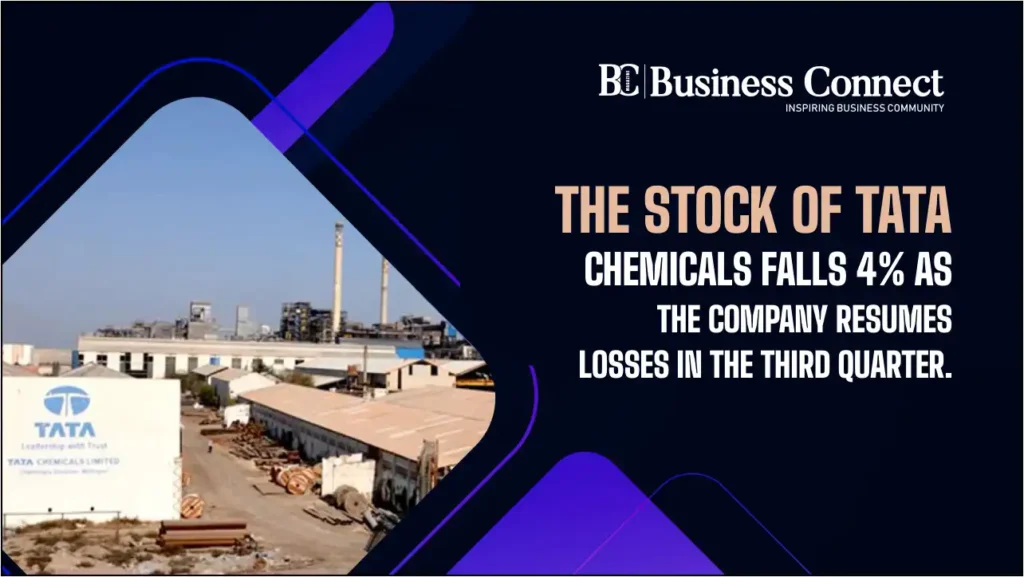Tata Chemicals expects the difficult demand-supply dynamics to continue in the foreseeable future, which will continue to put pressure on profitability.
On February 4, Tata Chemicals’ stock plummeted, falling more than 4% as a result of the company’s subpar Q3 results. In contrast to its net profit of Rs 194 crore during the same time last year, the firm posted a net loss of Rs 21 crore for the December quarter.
Tata Chemicals’ stock was trading at Rs 905.40 on the NSE at 09.48 a.m.
A one-time extraordinary loss of Rs 70 crore and lower soda ash prices hurt the company’s bottom line. Following the stop of soda ash production at the Lostock factory in Northwich, UK, expenditures associated with employee termination benefits, plant and machinery dismantling, and other closure-related charges accounted for the one-time extraordinary loss.
In the meantime, operating revenue fell 3.8% year over year to Rs 3,590 crore from Rs 3,730 crore at the same time last fiscal year. Additionally, the operating margin decreased from 14.5 percent in the same quarter last year to 12.1 percent in Q3.
In an exchange filing, R Mukundan, Managing Director and CEO of Tata Chemicals, stated that the company’s overall performance was lower than it was in the same quarter last year. This was primarily because soda ash prices were lower across all geographies and because a plant production outage in the US during the quarter resulted in higher fixed costs.
Mukundan anticipates that Tata Chemicals would continue to have difficulties in the future. “In the short-term, the current demand-supply adverse situation is likely to persist but should improve and stabilise over the long term driven by growth sectors based on sustainability trends,” he stated.
Due to reduced EBITDA and greater working capital requirements in the US, Kenya, and India, the company’s net debt increased by Rs 952 crore to Rs 5,329 crore, while its total debt remained at Rs 6,722 crore as of December 31, 2024, representing a rise of Rs 810 crore year over year.
Disclaimer: Businessconnectindia.in’s investing experts’ opinions and advice are their own and do not represent the website’s or its administrators’. Before making any financial decisions, consumers are advised by businessconnectindia.in to consult with qualified professionals.



